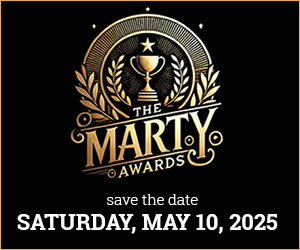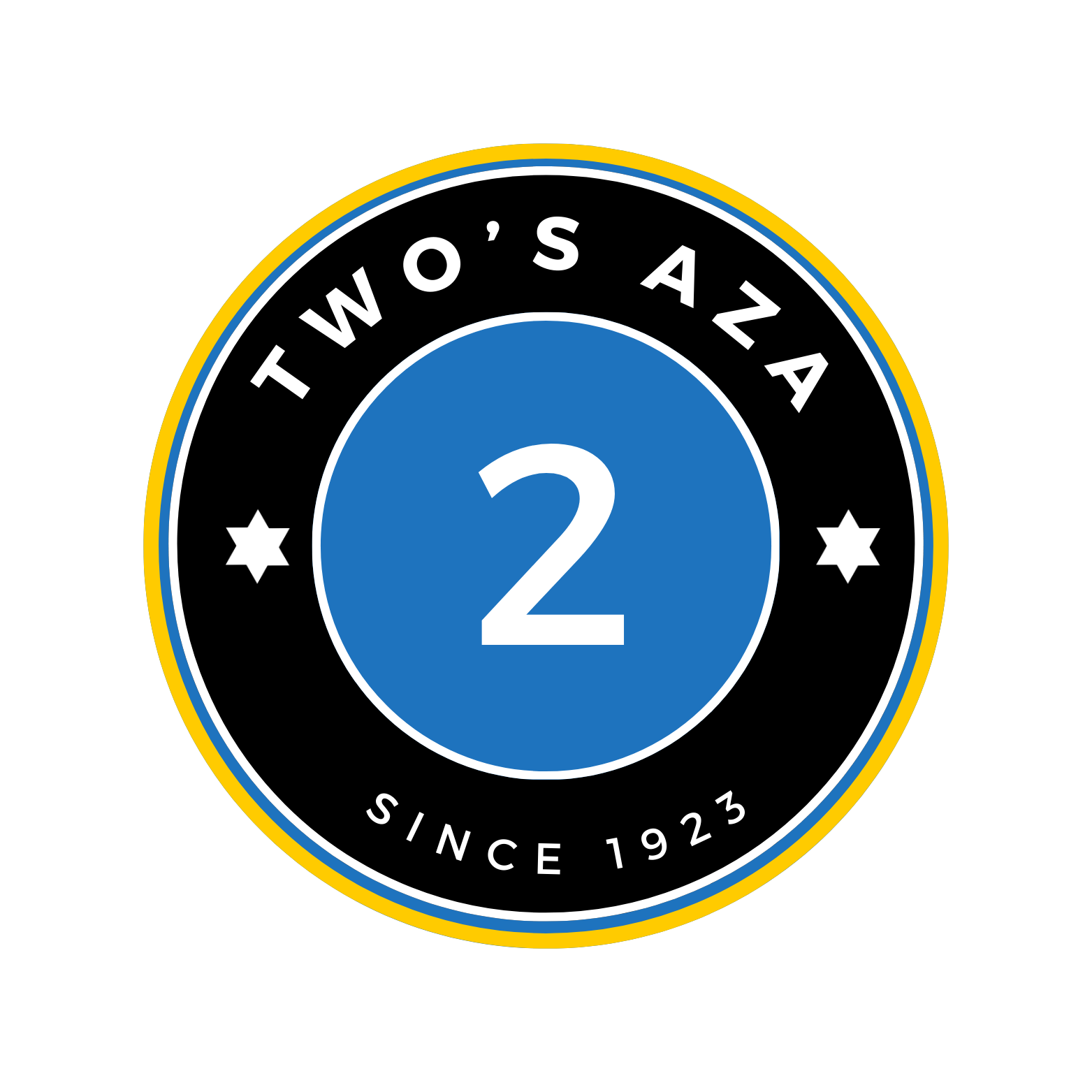
75 Years Ago
(From the Nov. 4, 1949 issue of The Kansas City Jewish Chronicle)
A.Z.A. No. 2 met Oct. 30 at the Jewish Center. The chapter will donate $35 to the Appleman Home for the Aged. Plans were made for a hayride Saturday, Nov. 12, at the Benjamin Stables. … A.Z.A. Council of Kansas City met at the Center, Sunday, Oct. 30. Plans are now being made for the coming A.Z.A. Regional Convention to be held here during the latter part of December.

50 Years Ago
(The Nov. 8, 1974 issue of The Kansas City Jewish Chronicle featured the obituary of Two’s alumnus Abe Super
Abe Super, 63, of 1107 w 87th St., owner of the former Agnes Market at 38th and Agnes, died Thursday, Oct. 31, at Baptist Memorial Hospital. A life-long Kansas City resident, Mr. Super was a Kansas City revenue officer for the last 8 years, and operated the market for 30 years before retiring from the grocery business. He was a member of Temple B’na i Jehudah and the Beth Shalom Men’s Club. He leaves his wife, Mrs. Miriam Super of the home; a son, Bruce Super, 9702 Eby; a daughter, Mrs. Marcia Bloom, 59 E. 107th St.; a brother, Harry Supofsky, 6229 Mission Road: a sister, Mrs. Ann Marks, 121 Ward Parkway; and four grandchildren. Funeral services were held on Friday at the Louis Memorial.
(Super, a 1928 graduate of Manual High School, was a member of Twos’ AZA in the late 1920s/early 1930s).

25 Years Ago
(The Nov. 5, 1999 issue of The Kansas City Jewish Chronicle featured a tribute to Two’s alumn Joseph Koralchik, a member of the chapter in the mid 1920s.)
For years, Joseph Koralchik helped people in the Jewish community from behind the scenes. He quietly did pro bono legal work for organizations and made charitable contributions to those in need.
Koralchik never wanted recognition for his philanthropic work. For him, tzaedakah wasn’t about recognition, but about helping others.
Still, a few years ago, local leaders convinced Koralchik to allow them to name the administrative wing of the Jewish Community Campus in his honor after he made a gift of over $1 million. Koralchik died at Menorah Medical Center Sunday, Oct. 24, at the age of 91 following several years of declining health.
Those who knew him well say he will be sorely missed.
Kansas City roots
Koralchik was born in St. Louis in 1908 but moved to Kansas City in his early years. He grew up in a traditional Jewish home where Yiddish was frequently spoken, said Jack Fingersh, Koralchik’s nephew.
“I think that the family upbringing and Joe’s connection with the Jewish Community Center formed the basis of his connection with the Jewish community at large,” said Fingersh.
“He was active as a young man at the activities at the old Jewish Community Center, which was on Linwood Boulevard. And, like many of his contemporaries, his social and cultural life centered around the activities there.”
Koralchik attended Manual High School in Kansas· City, Mo., and can be counted among its shining stars.
“It was a famous high school in those days for the people it produced,” said Jacob “Jack” Brown, who met Koralchik in high school and later became his law partner. “Philip Klutznick (the late former Secretary of Commerce and an international Jewish leader) was one of the graduates of Manual High.”
After graduation, Koralchik studied law at the University of Kansas.
“He graduated Order of the Coif, which is the highest honor,” said Fingersh. “After law school he worked for various lawyers in Kansas City. And then World War II came. And when he came back in 1948, he joined with Jack Brown and he formed Brown and Koralchik.”
It was a good match. Brown and Koralchik practiced law together for nearly 50 years. The firm continues to function under the name Lewis, Rice and Fingersh following a 1988 merger.
“We always got along very amicably,” said Brown. “We exchanged views on different subjects. And when issues arose that we needed each other’s viewpoint, there was a free exchange and never under harsh circumstances …. He was a very kind person, but quite introverted. You couldn’t get too much out of him. But he was very pleasant.”
Koralchik did much of his legal work for the garment industry in Kansas City.
At the time, said Fingersh, “Kansas City was one of the important two or three garment manufacturing centers in the country. Joe represented the Garment Makers Association, which was a trade organization. And he also represented many of the old prominent garment manufacturers who were constituent members of the association, many of whom were very prominent in the Jewish community.”
“Joe had a coterie of all very loyal clients with whom he counseled regarding their legal affairs and their personal affairs,” said Fingersh.
“They became friends and close confidants … He was treated with deserved deference by many generations of the same family. He began representing grandfathers. And in the second generation represented sons and daughters and even into the third generation.
That demonstrated that he was with it, saw the generational issues and was a good family counselor.” ‘
Koralchik established his own family later in life.
“Joe was 50 when he got married,” said Fingersh. “He had no children. But his wife (Betty Ann) had children from a former marriage, and he became close to them.”
“At the graveside services, Nancy (Koralchik’s step-daughter) spoke beautifully about Joe and how he had influenced her life … He was so fond of her and she of him. … She just couldn’t find words sufficient to express her feelings. He treated her like his own.”
Making an impact
Koralchik not only had a profound impact on individual people but on the Jewish community as a whole.
“I took part with him in his hunt for somewhere to make his charitable contribution,” said Howard Potts, Koralchik’s friend and former colleague. “He was looking for something that he could have an impact on. He had been looking for some time for something to do where he felt that it would help the Jewish community. I got to help him narrow it down to the (Jewish Community) Campus. The campus had more of an impact on more of the charities in the Jewish community than anything else he could think of.”
“In effect, Joe’s contribution was from a source that the people in the fund-raising hadn’t really identified. He stepped forward and made the gift. It came at a very important time for the community at large. It helped liquidate the debt on the campus, which was much appreciated.”
In all, Koralchik contributed $1.7 million to the Jewish Community Campus.
“When Joe made the gift to the Jewish community specifically for the Jewish Community Campus as an endowment, the impact was immeasurable,” said Susan Goldsmith, executive director of the Jewish Community Foundation. “Up until that point, the campus has absolutely no endowment to speak of and no way to take care of problems that were bound to arise in a building of this size. That endowment set the campus on a course that promised to guarantee the future of the physical building, which is so important to all of the agencies that live in it.”
Despite the enormity of the gift, Koralchik still did not want recognition for it.
“He not only didn’t seek the limelight, he shunned it actively,” said Fingeish. “That was his way.”
“We almost had to force it on him to give him some recognition,” said Irwin Blitt, Koralch’s former campus board president. Blitt and others succeeded in honoring Koralchik for his generosity. A wing of the campus now bears his name.
“Through the years, he made a number of donations to causes anonymously,” Blitt said. “And he he was really a gentleman and a caring person who was real mensch.”
“Joe’s impact on the community was tremendous,” Goldsmith said. “It’s a sad time for the community to lose someone like him.”



